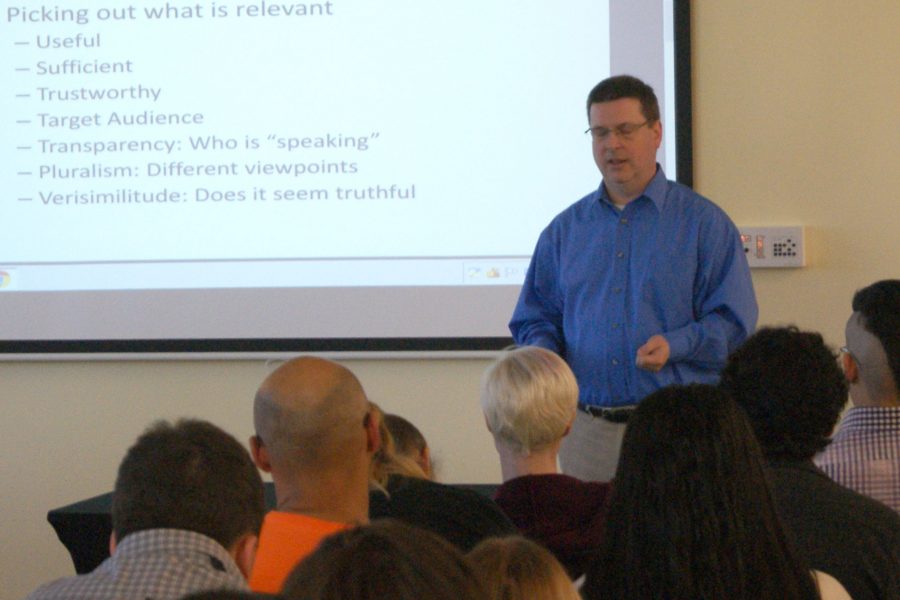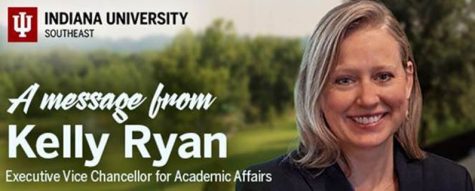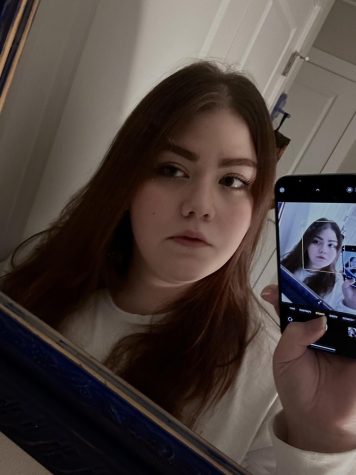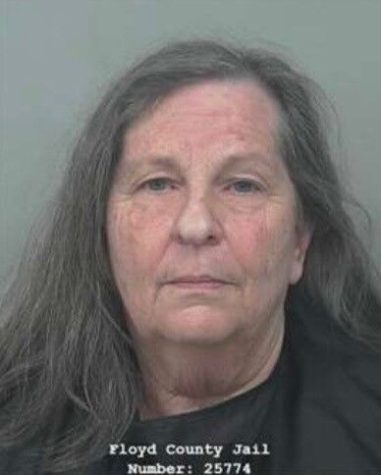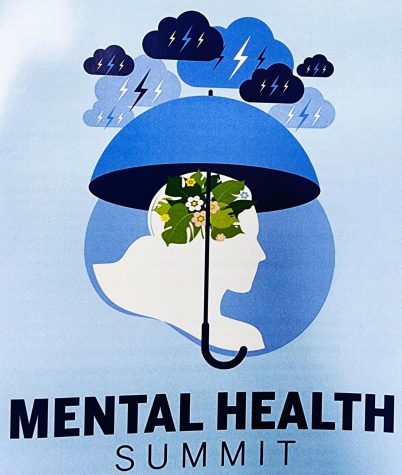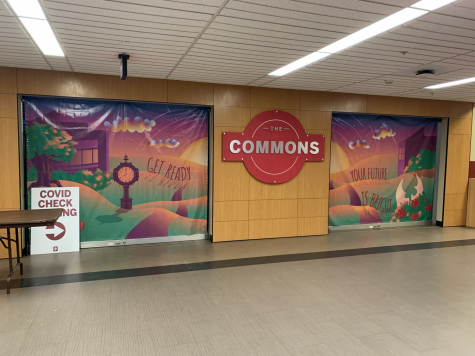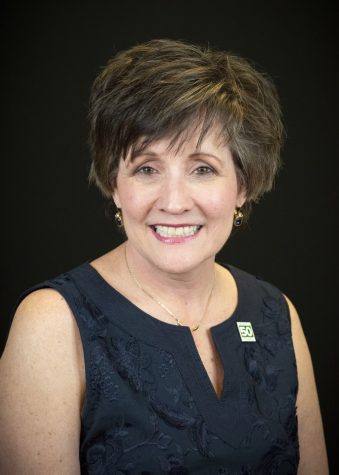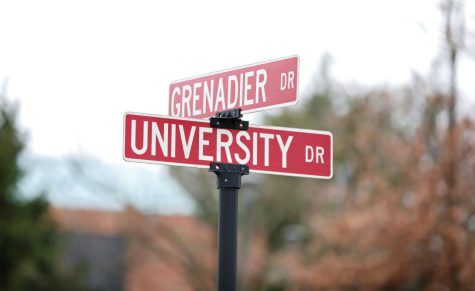Professors participate in 2016 election panel
Ron Allman, professor of journalism, speaks to the crowd about the media and if they need to change the way they cover politics.
April 29, 2016
The third floor of the IUS Library was recently home to a discussion about politics and whether or not Americans have created politicians’ characteristics.
On Wednesday, April 13 from 6 to 7:30 p.m., students gathered in the library to listen to a panel of IUS professors speak about how the country has created today’s politicians.
At the beginning of the panel, Rhonda Wrzenski, assistant professor of political science, said people view the 2016 election as uglier than past elections. However, Wrzenski said that while the way some candidates have spoken to others is ugly, many candidates said nasty things earlier in political history in the United States.
Wrzenski discussed times presidential candidates made outrageous statements and said nasty things about the others candidates’ wives. Wrzenski said John Adams once labeled Andrew Jackson’s wife as a convicted adulteress.
Also, Wrzenski said people usually do not know about more than hot topics when it comes to choosing who they vote for.
“The average citizen is not very well informed,” Wrzenski said.
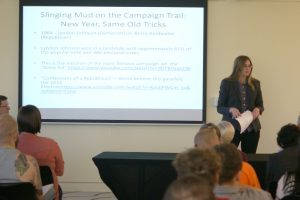
Ron Allman, professor of journalism, was the next speaker. Allman said the media are helping to fuel outrageous politics. He said big media establishments are doing this because they know they will get more viewers by showing outrageous moments.
Allman also addressed how much control the media can have when it comes to the information they are sharing with the public.
“We [the media] tell you what to think about, and how to think about it,” Allman said.
Melissa Fry, assistant professor of sociology and director of the Applied Research and Education Center, was the last speaker of the panel. Fry discussed how people view politics and how people determine how they vote. She said someone can agree with a liberal or conservative thought and then vote solely off of those emotions.
Fry also said the media and the amount of people who are extremely liberal and people who are extremely conservative have created the extremes seen in the current presidential candidates. She said candidates like Bernie Sanders and Donald Trump exist because they are extremes on two opposing sides.
The panel then opened up to questions. Allman was asked how people could show the media that they want better journalism.
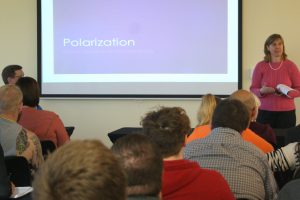
Allman said a decreased number of viewers would impact the media’s ad revenue and would ultimately make media outlets change the way they report the news. He also said he thinks that due to the amount of young people playing video games and chatting online, the media will have to change to appeal to those people.
Also, Wrzenski was asked why more people do not vote and how people can encourage others to vote.
Wrzenski said most young people do not know where to go to vote and that this keeps many people away from voting. She said people need to teach others of voting age how to register to vote, as well as help them understand the importance of voting.
Joshua Cassin, sociology freshman, said he thought it was effective that intelligent individuals talked about the issues Americans are facing.
“The event was very inspiring, in the sense that an analysis from three different specialties in academia open up the stigmatized conversation that the media seems to have imposed upon young people,” Cassin said.
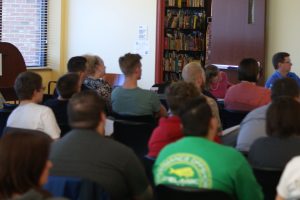 According to the Indiana Election Division and the Kentucky State Board of Elections, the deadline has passed to register to vote in Indiana’s and Kentucky’s primary elections, but Indiana and Kentucky residents 18 years and older can register to vote in the general election by Tuesday, Oct. 11. Those who live in Indiana who have not registered to vote and want to can register here, and those who want to register and live in Kentucky can do so here.
According to the Indiana Election Division and the Kentucky State Board of Elections, the deadline has passed to register to vote in Indiana’s and Kentucky’s primary elections, but Indiana and Kentucky residents 18 years and older can register to vote in the general election by Tuesday, Oct. 11. Those who live in Indiana who have not registered to vote and want to can register here, and those who want to register and live in Kentucky can do so here.

